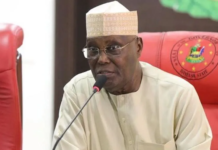Former Speaker of the House of Representatives, Yakubu Dogara, has emphasized that lawmakers’ monthly earnings cannot sustain them for more than three days. Speaking at the legislative open week of the House in Abuja, Dogara urged legislators to make their finances transparent to counter the perception that they receive exorbitant salaries.

During his time as a Member of the House, Dogara disclosed that his monthly salary was less than N400,000, while his monthly allowance as a presiding officer amounted to N25 million. He clarified that their allowances, though significant, do not last beyond a few days. Dogara further explained that he managed his allowances responsibly, opening a separate account solely for the purpose of catering to his constituents’ needs.
The former speaker shared these details to debunk misconceptions surrounding lawmakers’ pay and called on Nigerians to give their representatives some breathing space. He acknowledged that democracy is expensive and suggested exploring a local model that would be more cost-effective.
Dogara also urged fellow lawmakers not to succumb to pressure and surrender the current democratic system. He encouraged them to stand firm against attempts to undermine democracy for any reason.
Deputy Speaker of the House, Benjamin Kalu, echoed Dogara’s sentiments, stressing that the current salaries of federal lawmakers are insufficient to enable them to effectively carry out their duties. Kalu emphasized the distinction between salaries and allowances, clarifying that allowances are meant to support lawmakers in fulfilling their responsibilities to their constituents. He called for understanding and cautioned against the misconception that lawmakers receive excessive pay.
Kalu emphasized that slashing lawmakers’ salaries by 50 percent is not the solution to the financial challenges they face. He reiterated that the take-home pay of the average lawmaker is significantly less than what is often assumed.
The statements by Dogara and Kalu shed light on the financial realities faced by lawmakers in Nigeria. Their aim is to dispel misconceptions and foster a better understanding of the financial constraints lawmakers encounter in carrying out their duties. While it is crucial to ensure transparency and accountability in public office, it is equally important to recognize the challenges faced by those in positions of legislative responsibility.
As Nigeria continues its democratic journey, it is vital for citizens and lawmakers to engage in constructive dialogue regarding the financial aspects of governance. By fostering an environment of understanding, elected officials can focus on their responsibilities and strive to deliver effective representation to their constituents.




